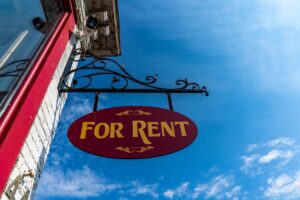It sounds crazy; renting the home you live in while owning an investment property. However, this might be crazy-smart in the right situation.
With interest rates skyrocketing, taking out a loan to buy in your current neighborhood might be unaffordable. However, a property you can afford might be prohibitively far away, or too small for your needs. This is why, in some situations, it makes sense to rent where you live and buy an investment property you can afford, which you can use for income, equity building, and tax breaks.

Photo by chris robert on Unsplash
The standard financial wisdom is that your rent money would be better spent on a mortgage payment rather than going to your landlord. There is much to be said for this philosophy; however, it is a bit too simple to apply to all situations. For example, if you pay the average rent in Manhattan of $3,975, this does not mean you can or should pay an average $1.4 million for a home in Manhattan at 7% interest. The common-sense financially savvy option would be to buy a home in Poughkeepsie, NY for an average $359,000 and commute two hours (each way) to your job in Manhattan. However, this makes only financial sense; most people would suffer in their life and work from a 4-hour daily commute. That said, there are some people who would be happy with this, and for those people, living two hours from work and saving money is a great idea.
Of course, the example I just provided is an extreme one; if home prices decrease in your city by about $100,000 if you commute 15 minutes, there’s something to be said for buying in the suburbs rather than renting downtown. But if this doesn’t work for your lifestyle, and the quality of your life and work would decrease if you lived where you can afford to buy, renting makes a lot of sense.
So, imagine you’ve decided you like renting an apartment downtown. There’s much to like about this, since you would avoid sky-high interest rates and the massive special assessments often charged to condominium owners. You like renting downtown, but you’ve saved up some money, and you’d like a good investment for it. This is when it might make sense to buy a small investment property you can afford and rent it out.
If you have a $30,000 down payment, you might consider purchasing a $250,000 investment property and finding a renter, or listing it on a short-term rental site. Even if you just break even on the amount you charge for rent versus your mortgage payment, the tax breaks can increase your annual after-tax income. For example, you can deduct 3.636% of your building’s value from your taxes each year to compensate for depreciation expenses. You can also deduct up to 20% of your income on the property by using a pass-through deduction (if you carefully follow IRS rules). Additionally, you can deduct money you spend to improve your property. Owning an investment property opens up more tax break possibilities than owning the home you live in.
If you own the home you live in, your home will never be a source of income, while a rental property can be. Of course, as a renter-landlord, you will be paying rent as well as collecting it, so you may be spending your income quickly. However, if you simply continue renting without owning an investment property, you will not be building equity, you won’t collect rental income, and you won’t have access to certain tax breaks.
Whether you decide to rent, own, or both, the best course of action is to truly get to know yourself and your needs, and ask yourself tough questions. Don’t make a large purchase just because society tells you it’s a good idea; you could easily wind up in a mountain of debt. Renting property exposes you to far less risk than owning it. When your ceiling starts leaking or your appliances break, your landlord is usually the one who pays. Whether it’s an investment property or a home you live in, the most important consideration is whether you can actually afford it.



